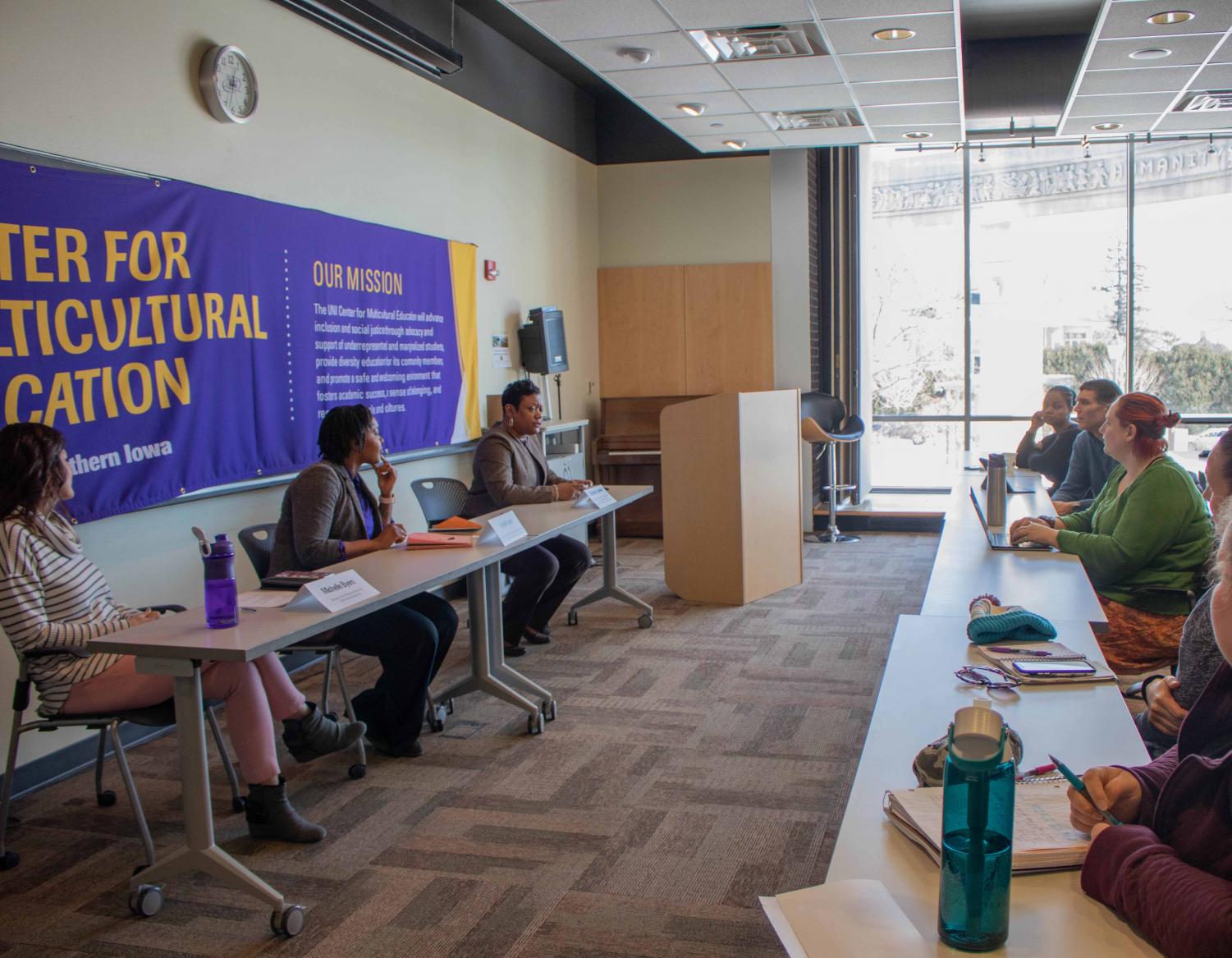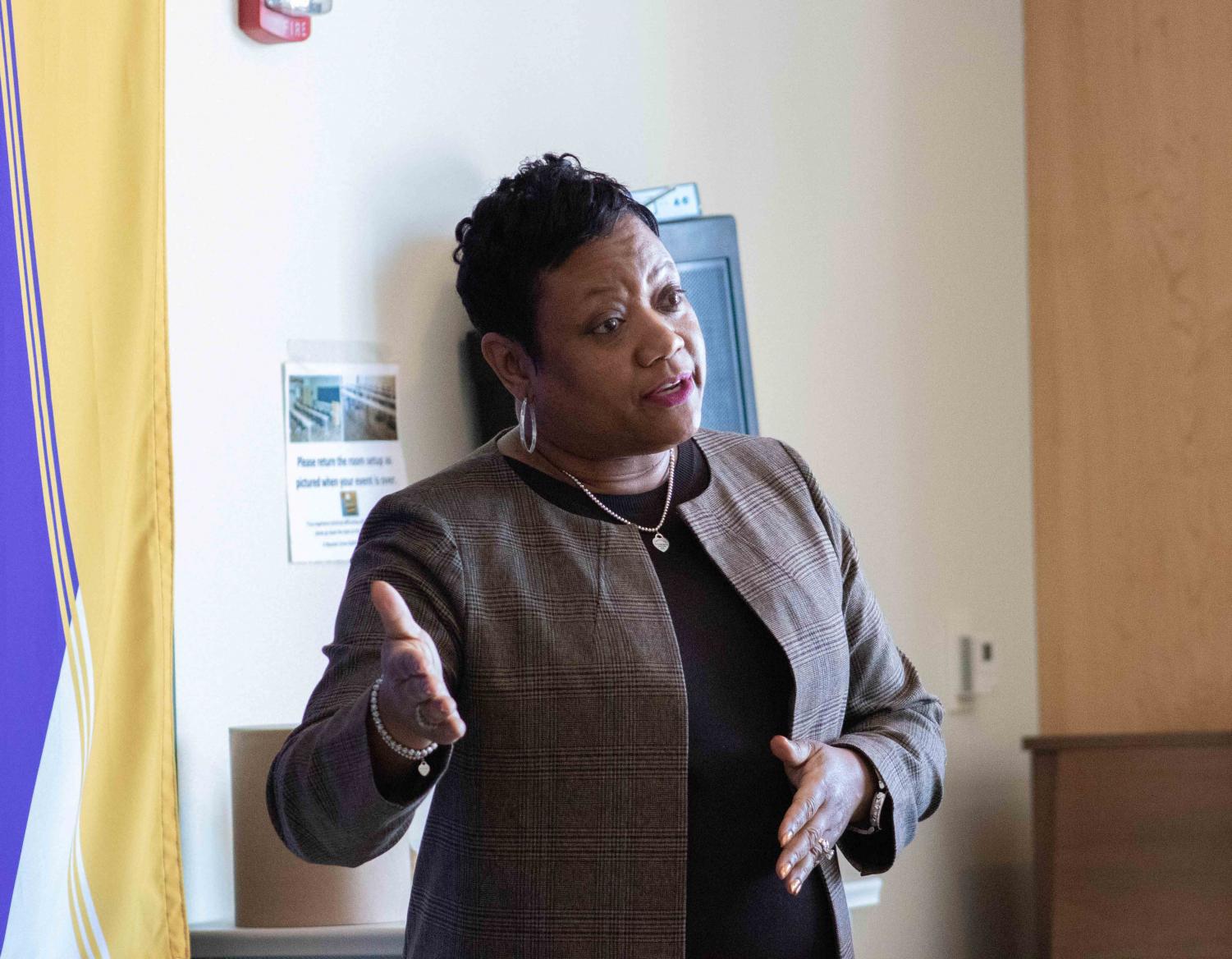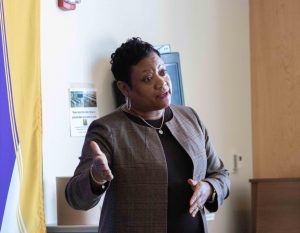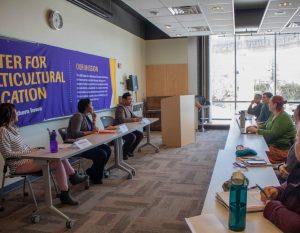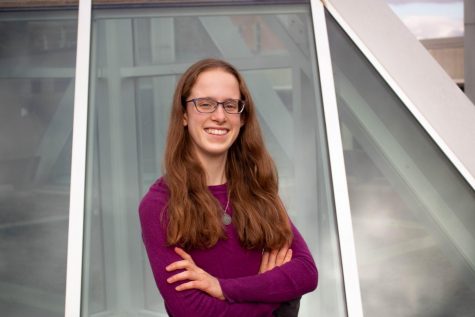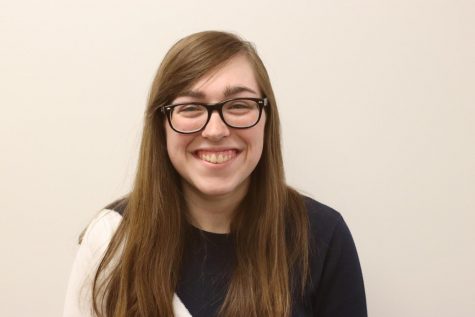Panel addresses diversity in the workplace
Feb 10, 2020
On Thursday, Feb. 6, UNI students, faculty and staff attended a panel discussing diversity in the workplace, held at the Center for Multicultural Education (CME) at noon. Panelists included assistant vice president and director of the UNI Office of Human Resources Michelle Byers, assistant director of the CME Keyah Levy and Military and Veteran Student Services Coordinator Chiquita Loveless. The three panelists shared stories from their workplace experiences and offered advice for attendees.
Much of the panel focused on the challenges and opportunities for minority employees in the workplace. Loveless told the audience the story of her 23-year career in the U.S. Navy and the challenges she overcame as a black woman in her field. Loveless achieved the rank of Chief Warrant Officer, a rank awarded to less than 1% of enlisted officers in the Navy each year. She noted that in every one of her commissions in the Navy, she was either the first female or the first black female, as she was when she served two tours at sea as a Navy SEALS Communications Chief.
“I was the first black female chief on that ship,” she said. “Was it hard? Yes. Was it very hard? Yes. I had to watch how I wore my hair, how I conducted myself because all eyes were on me. All I knew was that all the obstacles were against me.”
Loveless used her experiences in the Navy to emphasize that in any workplace, employers should make hiring decisions based on ability to do the job required.
“I may be the only female with you guys, but I can stand up and do the same thing you can,” she said. “When we [at the CME] are looking to hire someone, we’re looking for someone who wants to come in and do the work to make this great university even better. We’re not looking at color, we’re not looking at gender, we’re not looking at any of those things.”
The conversation turned to the role that UNI faculty and staff can play in encouraging diversity in the classroom and workplace. Kevin Droe, associate professor of music, asked panelists how university staff can help minority students view college as a stepping-stone to a bright future rather than as an obstacle to “get through.”
Levy emphasized that building a relationship with students is essential.
“When you have compassion, that takes you so far,” she said. “Some of these students feel overlooked on campus, in that they don’t feel like they have anything to look forward to after graduation and they don’t have dreams after that. So, I think it’s important to build relationships with students and figure out who they are […] to help guide them through their process.”
Byers agreed that individual relationship building allows staff to better understand how to help each student.
“One student’s needs might be very different from the next student’s needs,” she said. “Having an understanding of what they’re going through or what some of their challenges are makes you more aware that […] there isn’t a one-size-fits-all for all students.”
Levy added, however, that staff should be careful to avoid viewing barriers as deficits.
“I think we have a deficit mindset that ‘oh, because this student hasn’t done this, they are unable to do it,’” she said. “We have to change that mindset.”
“Don’t quit,” Loveless said. “Don’t quit on them.”
The panel’s moderator, associate dean of the Graduate College Gabriela Olivares, concluded the panel by reminding attendees of the importance of checking their biases and prejudices in these situations. She emphasized, however, that biases are not something to be ashamed of, but rather something to be mindful about.
“We have to be aware that we all have biases, because we have been raised in a society that has norms, beliefs and ways of being,” she said. “[It’s about] being able to detach yourself from those beliefs.”
Graduate student in social work Katie Rodgers attended the panel as a chance to broaden her awareness of issues related to diversity.
“I think it’s a topic that we all need more exposure to, so I just want to take every opportunity I can to take advantage of that,” she said. “I liked the recurring theme of coming with an openness and laying down your preconceived self to be open to what others’ opportunities and experiences are.”
“This thing is so much bigger than us,” Loveless said. “What legacy can we leave if we make the proper changes and put the right people in place? […] We have to make the change, and we have to do it now.”


